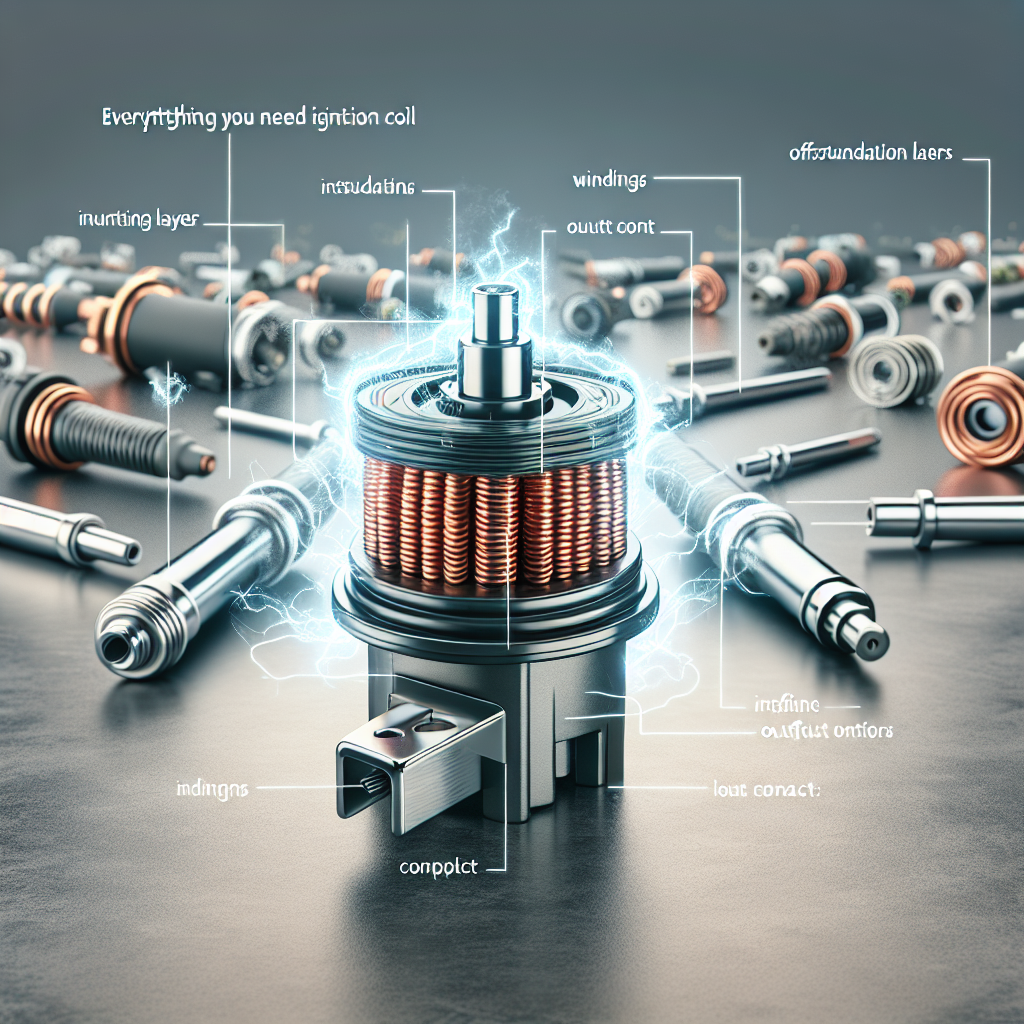Aftermarket ignition coils are an essential component for car enthusiasts and everyday drivers alike, offering improved performance and reliability over stock parts. They play a crucial role in an engine’s ignition system, transforming the battery’s low voltage to the thousands of volts needed to spark the spark plugs. But what makes aftermarket ignition coils a worthwhile investment, and what do you need to know before purchasing them?
Understanding Ignition Coils
First, it’s important to understand what ignition coils do. An ignition coil converts the 12V current from the car battery into a much higher voltage, typically ranging from 12,000V to 45,000V. This voltage leap is necessary to generate the spark that ignites the air-fuel mixture in the engine’s combustion chambers.
Types of Ignition Coils
There are several types of ignition coils that you might encounter, including:
-
Canister Coil: Typically used in older vehicles and some performance applications.
-
E-Core Coil: More common in modern cars, offering a more compact design.
- Coil-on-Plug (COP): Found in most contemporary vehicles, these coils mount directly on the spark plugs, reducing energy loss.
Benefits of Aftermarket Ignition Coils
-
Improved Performance: High-quality aftermarket ignition coils can deliver a more potent spark, leading to a more efficient combustion process. This results in better throttle response, improved fuel economy, and increased horsepower.
-
Reliability: Aftermarket coils are often more durable than stock parts, as they are designed to withstand higher stress and temperatures. This can lead to a longer lifespan and fewer chances of misfires or other ignition problems.
- Compatibility with Modifications: If you’ve made other performance upgrades to your vehicle, such as a turbocharger or a custom exhaust system, aftermarket ignition coils ensure that your ignition system can keep up with the increased demands.
What to Look For
When considering aftermarket ignition coils, there are several factors to consider to ensure you get the best value for your money:
-
Brand Reputation: Not all aftermarket parts are created equal. Look for brands with a solid reputation for quality and customer satisfaction.
-
Compatibility: Ensure that the coils you select are compatible with your vehicle’s make, model, and engine type.
-
Specifications: Understand the voltage output, resistance, and other specs to make sure they meet or exceed your vehicle’s requirements.
- Warranty: A good warranty can offer peace of mind, protecting you against potential defects and issues.
Installation Tips
While installing ignition coils is generally straightforward, it’s crucial to follow the manufacturer’s instructions closely. Disconnect the battery before starting, label your spark plug wires if necessary, and ensure all connections are secure. If you’re not confident in your ability to install them yourself, consider seeking help from a professional mechanic.
Potential Drawbacks
While aftermarket ignition coils come with numerous benefits, there can also be some downsides:
-
Cost: High-quality aftermarket coils can be more expensive than OEM (Original Equipment Manufacturer) counterparts.
- Compatibility Issues: Even minor incompatibilities can lead to performance issues. Always double-check compatibility before purchasing.
Conclusion
Aftermarket ignition coils can offer significant performance and reliability benefits over stock coils, making them a valuable upgrade for many drivers. By understanding their function, benefits, and what to look for, you can choose the best coils for your needs and ensure a successful installation.
For further reading on how ignition coils work and their benefits, you can visit How Stuff Works for a more detailed breakdown. This information will help you make an informed purchase and enhance your vehicle’s performance.
By thoroughly researching and selecting the right ignition coils, you can enjoy a smoother, more powerful driving experience while ensuring your vehicle remains reliable and efficient.

